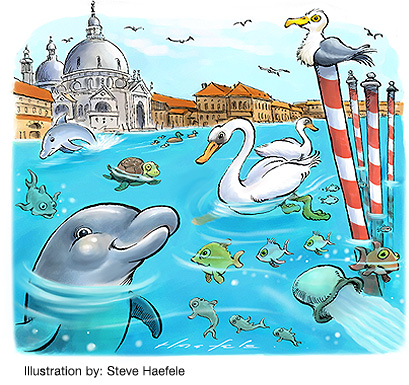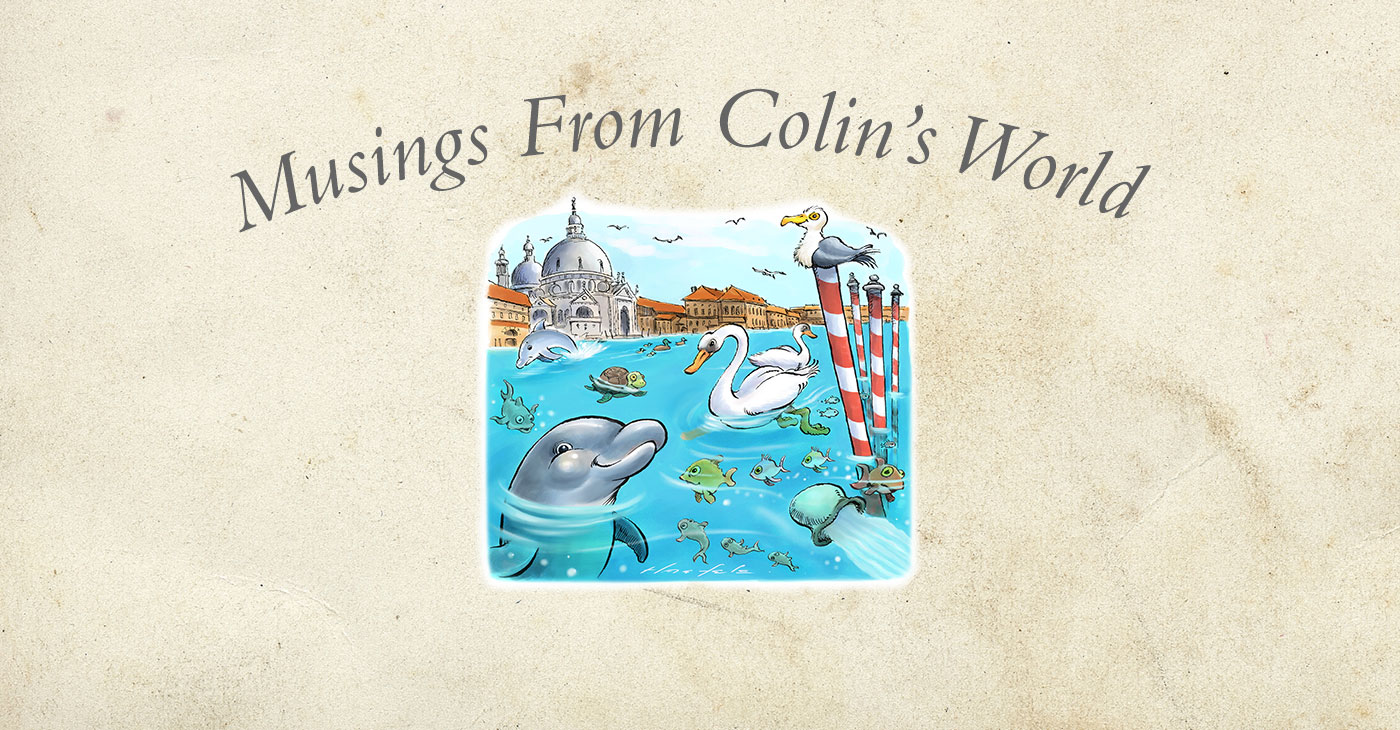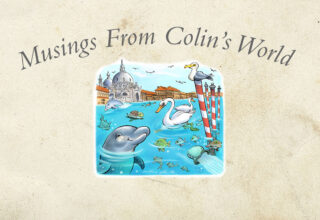From the beginning, even as I was shuddering in fear before the rapid advance of the pandemic, it was apparent that COVID-19 would not just come and go and be quickly forgotten. It was going to leave the world a changed place. The question was how.
It was hard to grasp, but it quickly became evident that the world of a few weeks before was gone. The future would have to be “a new normal.” But what was most frightening was that the shape of that future – though we were on the cusp of it – was still unknown.

For thousands of people the pandemic has been an unspeakable ordeal. For those who have lost a loved one, my heart goes out. Only time can heal that. But I offer the words that Abraham Lincoln wrote to the grieving daughter of a deceased friend.
“You cannot now realize that you will ever feel better… And yet it is a mistake. You are sure to be happy again… The memory of your dear Father, instead of an agony, will yet be a sad sweet feeling in your heart, of a purer and holier sort than you have known before.”
The ordeal is not over yet. But the dreadful curves have begun to plateau and it’s possible now to begin to see a point in the future when it will have run its course.
The world will come through this as it has many pandemics throughout history. And as with all trials, those who survive will have learned from it, will be strengthened in some ways, perhaps wiser and more compassionate.
Keep the Change
It was astonishing to see our civilization go into a giant time-out. Many of the things we think of as imperative, things we must do every day, suddenly stopped.
Every day, billions of people around the world get up and do what they did the day before. We take our places in the big machine and contribute our daily energies to fuel it for one more turn. We never allow ourselves to think that we could stop doing what we do.
But now, under the threat of COVID, we see that we can stop almost all the things we thought we could never stop. It reveals to us the extent of our power to change. We all want to return to our previous comfort as soon as we can. But maybe there are some things about the change that we can learn from.
Los Angeles is virtually smog free for the first time in memory. Nitrogen dioxide pollution in the Northeast U.S. is down 30 percent, the lowest since NASA started measuring it. Air pollution in Rome in late March was down 48 percent from the previous year.
People in Jalandhar, India, could see the Himalayas for the first time in decades. We hear of coyotes on Chicago’s Michigan Avenue and the Golden Gate Bridge; a puma in Santiago, Chile; swans and dolphins in the canals of Venice.
This is happening everywhere. This involuntary experiment has pointed toward ways we can improve our world. But probably even more significant is how it has changed our personal spheres.
The Family Hearth
Most people around the world have been forced to shelter in place, and it has produced some surprising results.
Having to stay indoors can induce a severe case of cabin fever. But it has caused us to experience things we would not have otherwise experienced, some of which may be beneficial.
Spiritual teachers have always taught the benefits of silence and solitude. But who in our frenetic world has time for that? Now suddenly we find ourselves forced to experience more quiet moments than perhaps ever before. And we can discover some of the benefits we have heard about.
While we are experiencing this period of isolation, we know that almost everyone else is going through what we are going through. While we sit in our separate domains, we are also participating in one of the largest group efforts in history. And although we’re physically isolated, with social media we can reach out and join others in cyberspace.
I know of many who have found new joy in communing with family or friends in a way that would have been virtually impossible under normal circumstances.
I’ve spent the last month and a half living with family who previously lived apart, parents, children and grandchildren, spending more quality time together than ever before, as if in some earlier period.
I almost felt guilty about benefitting from the crisis. But the fact is, I had longed for an opportunity to gather my family together for a sustained period, and could never make it happen. There were always too many things in the way. Trying to coordinate everyone’s schedules, deadlines and commitments, seemed beyond the realm of possibility. And then suddenly the opportunity came.
The fact that it’s a time of crisis has made our time together even more poignant. As we have experienced the danger and the grief, the fragility of life, we have appreciated each other more than ever.
In spite of the crisis, I have always been conscious of the fact that it was a rare and precious opportunity to spend time with my closest loved ones.
Higher Joys
We as a society had churned ourselves up to such a dizzying speed, that we couldn’t see around us. Then suddenly this tiny thing, so microscopic we can only recognize it by its effects, brought the world to a stop. And we have had time to stop and think, look around and appreciate what we have.
In the middle of the tragedy, people have risen to the cause, to provide help and cheer to others. I’ve seen many posts and emails that tell an epic story of human heroism in large and small acts.
“I think we will all look back over the long period of being locked down,” said one friend, “and see how our relationships have become closer and more important; and how all the other noise in our lives is a lot less important than we thought before this.”
Dan Mahar of Tauck wrote: “The bright shining gift of this time is having all of our children home – four are distance learning with their schools and one is working remotely; our WiFi is getting a workout! This gift has resulted in time for family meals and great conversation, free of other commitments. By slowing down we have reflected on how busy our prior life was and, do we want to go back there? Over-scheduled sports schedules, too many evening commitments, and quite simply, how we spend our time. Or how much we miss/value our relationships. We will appreciate our friends and family, ever more, on the other side. I believe we will value our local establishments and sense of community – restaurants, grocery stores, organizations that take care of those on the margin as we see their story now and understand the essential roles they play in our life. We will value the small beauties of life ever more, on the other side. Or, this is my hope.”
And it is my hope for you.
Your humble reporter,
A. Colin Treadwell

